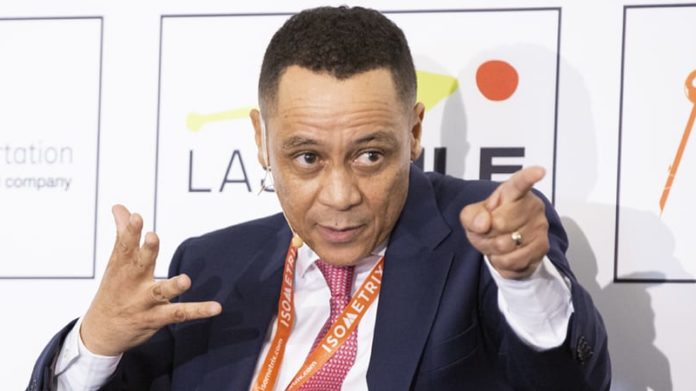
A GLARING rift between the South African government and the country’s coal miners was revealed today at the Coal & Energy Transition Day conference being held in Johannesburg.
That emerged during a panel discussion which triggered a face-off between Crispian Olver, executive director of the Presidential Commission on Climate Change, and Mike Teke who is a former president of the Minerals Council and CEO of Seriti Resources which is one of the country’s largest coal miners.
At stake is the future of the coal industry which employs more than 100,000 workers as well as having implications for the broader South African economy in terms of power provision and possible future international pressure on the country as it seeks to meet its international commitments to reduce carbon emissions.
Among the accusations traded were that the Climate Change Commission was “anti-mining” while the mining industry was “in denial” about the need to face up to the climate change situation.
Olver commented: “I am not anti-mining but I am expressing a deep sense of frustration that I cannot get a conversation going with the coal mining industry.
“We want to urgently start working with the coal industry to plan what we call the just transition. It’s about economic diversification; it’s about exploiting the potential that Mpumalanga has for the future green economy.
“But every time we try and move closer to the coal industry and have this conversation we are met with this bluster that the transition is not going to happen in the 2030’s. It’s either never going to happen or there is this fiction that carbon capture and storage is going to ride to the rescue. But the physics of carbon capture simply do not add up.”
Olver added: “The transition is coming and we can argue about the pace of it but it is going to be impossible to have a conversation with the industry if we cannot get past the basic denial around the transition”.
World will turn on SA
Teke retorted he was surprised by Olver’s statements over a lack of engagement and commented:”We have met and said we are open to a conversation going forward”.
“I have met with you Mike, but we have not been able to get beyond the ‘hello howzit’ stage,” Olver replied. “We have not rolled up our sleeves and gotten down to planning a just transition. I have repeatedly asked the Minerals Council and various mining companies for this engagement. It has not happened.”
Olver warned about the impact of future likely international action against South Africa if the country dragged its feet on reducing emissions as the international impact of climate change accelerated.
“At some point change it is going to be forced on us. At that stage if we have not started to de-carbonize our economy then our economy is just going to get shut down. We have to lay the foundations for transition ahead of this.”
This view was opposed by Menar MD, Vuslat Bayoglu who highlighted the hypocritical actions of countries which were telling South Africa not to burn coal. These included European countries which were stepping up coal production and importing more coal from South Africa because of cuts in Russian gas supplies and the United States looking for greater oil production from Saudi Arabia.
Rejecting predictions of the South African coal industry’s imminent demise, Teke recounted the view of a banker – whom he approached for a loan in 2012 – that the coal industry “would be gone by 2025.” That banker was currently pitching to fund Seriti’s further expansion.
Olver’s broad vision for South Africa’s energy future was that coal usage would run to the 2030’s but then be largely replaced by natural gas drawn from Mozambique during an intermediate period before the country transitioned to the “long term energy carrier of choice which is hydrogen and the big hydrogen play will be in the 2040’s”.









